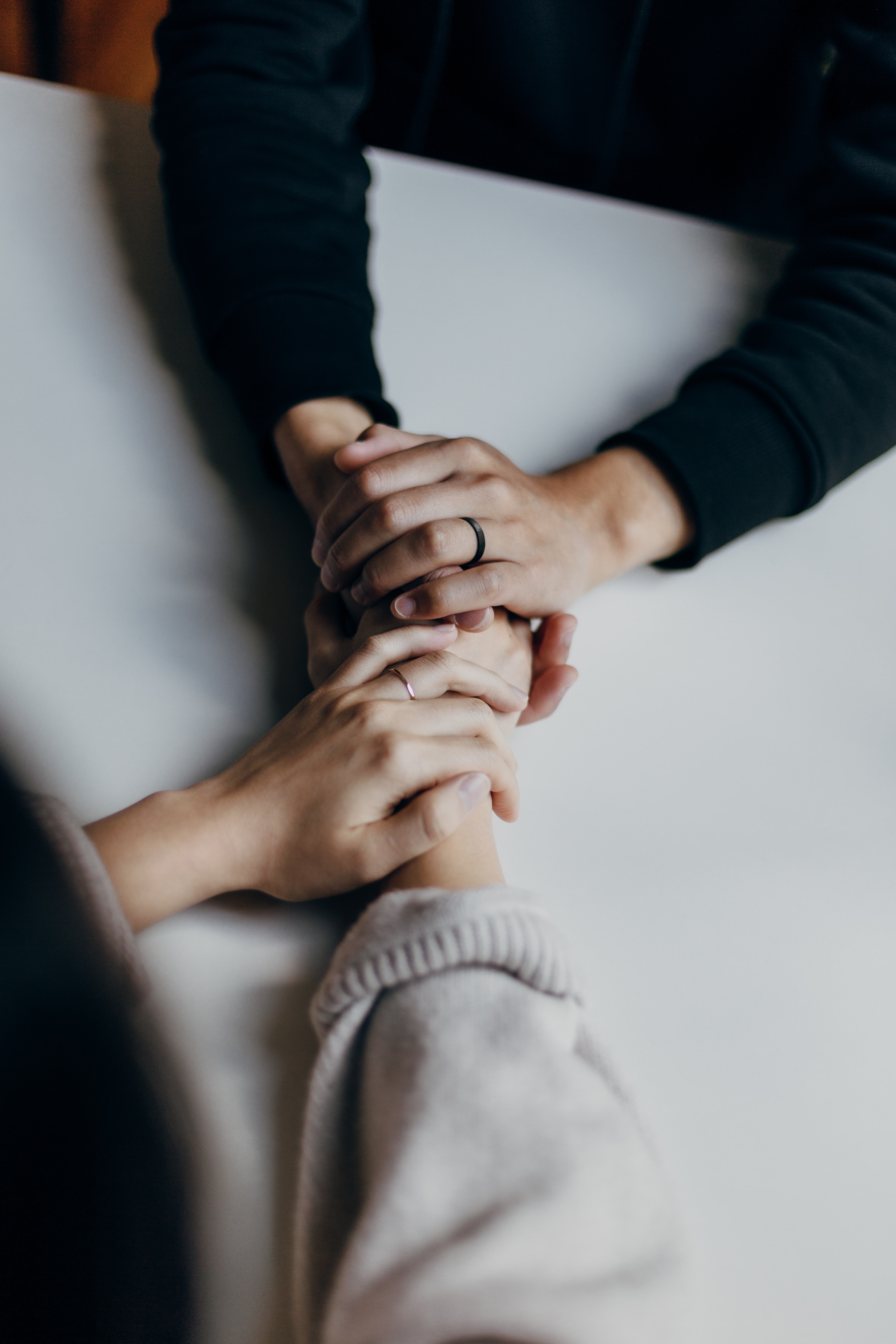
Do you have Huntington’s disease in your family? Do you provide care for someone with HD? Do you have symptoms of HD, or are you at risk? Would you like to meet other people who have been affected by HD? Are you interested in learning strategies to help you deal with HD?
Support can range from simply lending a helping hand to learning about self-care, resources, and stress management. A support group is also a place for people to share concerns and obtain emotional support. Attending a support group may be a difficult decision that may open many doors and offer important and safe connections.
San Diego's support groups are available for those 18 and older. The groups include an HD Positive group for those diagnosed with HD and a Caregivers Group. A facilitator leads each group. Speakers such as healthcare professionals, legal experts, and housing and placement specialists may also be invited to speak.
If you are not currently on our support group mailing list and would like to be, please email Christine Greve at cgreve@hdsa.org and Susan Reynolds at sreynolds@hdsa.org
We also offer on-line support group options through HDSA Hey Peers
HDSA Hey Peers Online Support Groups:
Southern CA General support group Second Sunday of each month 5pm - 6pm
Southern CA Caregiver support group Third Sunday of each month 5pm - 6pm
Bereavement support group Fourth Tuesday of each month 12pm - 1:00pm
HD Person support group Third Tuesday of each month 12pm - 1:30pm
IN-PERSON HD POSITIVE GROUP & CAREGIVERS GROUP SAN DIEGO AREA
*Please note that the June in-person support group will be on June 17th instead of June 24th.The assigned rooms are 3-007 and 3-093.
When: Last Tuesday of each month (except for June), 5-6:30 pm. Refreshments and socializing from 5-5:30 pm. Groups are from 5:30-6:30pm.
Where: UC San Diego Shiley-Marcos ADRC East Campus Office Building (ECOB), 9444 Medical Center Dr., La Jolla, CA 92037
How to sign up for Hey Peers for online HDSA Support Groups
Step-by-step instructions with pictures on how to sign up for Hey Peers
Step-by-step instructions with pictures on How to Register for Support Groups on HeyPeers
All Zoom groups can now be found on the Hey Peers Platform. Please click and follow the instructions above to register and sign up for any or all of the groups you want to attend.
If you have any registration challenges, please contact Susan Reynolds, LCSW, at sreynold@hdsa.org or Laura Demsey, MS, at lauralseyffert@gmail.com for assistance.
What makes an effective support group? Involvement from the HD community, people spreading the word about the group, willingness to participate in a group setting and share experiences, and cooperation and collaboration amongst members.
What are some benefits of a support group? Meeting others familiar with the effects and impact of HD, caregiving strategies, self-help strategies, and knowledge about reliable community care and resources.
We hope to see you at one of our meetings!
Support can range from simply lending a helping hand to learning about self-care, resources, and stress management. A support group is also a place for people to share concerns and obtain emotional support. Attending a support group may be a difficult decision that may open many doors and offer important and safe connections.
San Diego's support groups are available for those 18 and older. The groups include an HD Positive group for those diagnosed with HD and a Caregivers Group. A facilitator leads each group. Speakers such as healthcare professionals, legal experts, and housing and placement specialists may also be invited to speak.
If you are not currently on our support group mailing list and would like to be, please email Christine Greve at cgreve@hdsa.org and Susan Reynolds at sreynolds@hdsa.org
We also offer on-line support group options through HDSA Hey Peers
HDSA Hey Peers Online Support Groups:
Southern CA General support group Second Sunday of each month 5pm - 6pm
Southern CA Caregiver support group Third Sunday of each month 5pm - 6pm
Bereavement support group Fourth Tuesday of each month 12pm - 1:00pm
HD Person support group Third Tuesday of each month 12pm - 1:30pm
IN-PERSON HD POSITIVE GROUP & CAREGIVERS GROUP SAN DIEGO AREA
*Please note that the June in-person support group will be on June 17th instead of June 24th.The assigned rooms are 3-007 and 3-093.
When: Last Tuesday of each month (except for June), 5-6:30 pm. Refreshments and socializing from 5-5:30 pm. Groups are from 5:30-6:30pm.
Where: UC San Diego Shiley-Marcos ADRC East Campus Office Building (ECOB), 9444 Medical Center Dr., La Jolla, CA 92037
How to sign up for Hey Peers for online HDSA Support Groups
Step-by-step instructions with pictures on how to sign up for Hey Peers
Step-by-step instructions with pictures on How to Register for Support Groups on HeyPeers
All Zoom groups can now be found on the Hey Peers Platform. Please click and follow the instructions above to register and sign up for any or all of the groups you want to attend.
If you have any registration challenges, please contact Susan Reynolds, LCSW, at sreynold@hdsa.org or Laura Demsey, MS, at lauralseyffert@gmail.com for assistance.
What makes an effective support group? Involvement from the HD community, people spreading the word about the group, willingness to participate in a group setting and share experiences, and cooperation and collaboration amongst members.
What are some benefits of a support group? Meeting others familiar with the effects and impact of HD, caregiving strategies, self-help strategies, and knowledge about reliable community care and resources.
We hope to see you at one of our meetings!
